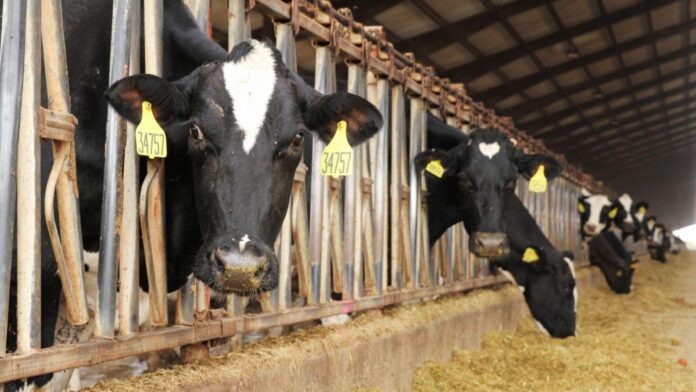Brazil, a major global producer of dairy products, has offered its expertise in the genetic improvement of dairy cattle through several technologies such as insemination and embryo transfer aimed at boosting the productivity of India’s cattle.
“We are working on some of the projects to bring in our expertise on genetic or breed development of cattle to India using various methods such as insemination and embryo transfer.” Raquel Borges, international supervisor, Brazilian Association of Zebu Breeders (ABCZ), which has more than 24,000 members, told FE.
Borges mentioned that discussions are ongoing about establishing a joint Zebu research institute in both countries, aimed at boosting milk production and improving the genetics of the herd. While India is the world’s largest milk producer, productivity remains low due to small herd sizes and a lack of genetic improvement in recent decades.
Also Read Prosperity through cooperation Indian Railway officers to gain field experience for better staff coordination : Ashwini Vaishnaw India may step up imports of pulses & edible oils from Brazil Placing Indian agriculture on the global map
Suresh K. Reddy, India’s Ambassador to Brazil, told FE that as a first step, the National Dairy Development Board has placed a trial order for 50,000 semen doses from a champion bull in Brazil, which will be used for inseminating native cows. Reddy also mentioned that some private breeders have started sending their personnel to Brazil for training at various Brazilian dairy farms.
ABCZ maintains the genetic purity of Zebu animals and has the largest database of breeds in the world with over 7 million registered animals. The association imported animals from Europe which could not survive the tropical climate of Brazil.
Brazil has the largest commercial cattle herd of 220 million animals. Out of the total herds in the South American country, 80% belong to the Zebu variety while the rest are European breeds such as Jersey.
In India, the average milk is around 8 to 10 litres daily. In Brazil, milk yield is in the range of 20-22 litres.
According to an official note, between the late 19th and early 20th centuries, Brazil imported Indian zebu breeds such as Gir, Ongole, Red Sindhi and Kankrej. A Gir cattle pair by Maharaja Krishna Kumarsinghji of Bhavnagar, Gujarat was given as a gift to Brazilian livestock entrepreneur Celso Garcia Cid in the last 18th century
Brazilian breeders crossbred the Indian Gir with Holstein cattle to create the Girolando breed,
» Read More


